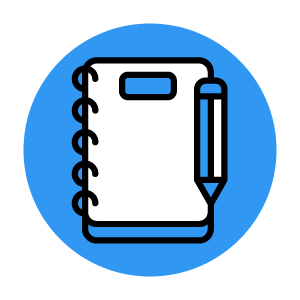Coach's Corner: Inside a High-Performance Team Culture
 |
| Travis Hudson |
Collegiate women’s volleyball coach, Travis Hudson, talks about his involvement working with Certified Mental Performance Consultants® (CMPCs).
Travis Hudson, Western Kentucky University
Interviewer: Lindsey Hamilton, IMG Academy, EdD, CMPC
Welcome, Travis! Thanks for joining AASP for this Coach’s Corner interview. Would you start by telling us a little about yourself and your program?
Thanks for having me today. I’m Travis Hudson. As the women’s volleyball head coach at Western Kentucky University, I'm 30 years into this coaching journey at my alma mater. We have grown a highly successful volleyball program throughout my time from a program that started at rock bottom. We had a 7-26 record my first year as head coach, and now WKU Volleyball has been at 25 wins for 10 of the last 11 years, which has been special to see.
Congratulations to you on your career longevity and the caliber of that career. For a number of years you've worked with a Certified Mental Performance Consultant® (CMPC) as a part of your program. Is that right?
Yes, we've been very fortunate to have a CMPC on our team as a faculty member here at Western Kentucky. I was fortunate to connect with her; and, from the time she became part of our program, it was literally program-changing for us. She’s been with us ever since 2002. I don't think it's a coincidence that 2002 was also the first time that Western Kentucky University ever went to a National Collegiate Athletic Association (NCAA) tournament in volleyball. I would say having a CMPC on our team has been helpful and a good luck charm all at the same time.
Over 20 years of collaboration—that's impressive! Can you share some of the interventions, or the work she as your CMPC brought to your program, your team, and your players?
Working with a CMPC has touched our program in many different ways. It started with some positive self-talk or things for individual athletes. I learned when these young ladies enter this program, they’re used to being the best player at their high school, so they were never truly challenged mentally before. They were always the most talented kid on the court. They get to college volleyball, walk into a gym, and everyone around them is as talented as they are. That new environment rocks them to a certain degree. Having someone to intervene and help in those spaces has been tremendous. The CMPC has done a lot of positive self-talk work with us. She comes in and does team-building activities and goal-setting, which has been critical to our success. One of the favorite moments of our season every year is understanding how to properly set goals. There's a difference between a wish list and a set of goals, and we have to know how to separate those things. On so many different levels, working with a CMPC has impacted our program and left us better off because of it.
Could you further describe the direct impact that working with a CMPC has had on the Western Kentucky University women’s volleyball team and program?
Western Kentucky volleyball had never been to an NCAA tournament prior to 2002, which is the year we brought a CMPC on our team. It was almost like we had done all the physical work and recruited higher-level athletes and been able to do all those things. We needed something else to give us an edge to push up toward a breakthrough. In many ways, bringing a CMPC onboard gave us the boost we needed to make that final step and become a championship caliber program. We have had many talented players that struggled for the first time in their athletic careers when they arrived at the collegiate setting while also going to school and balancing the role of student-athlete. Our CMPC talks to the players one-on-one as needed, and many of these women have gone on to become All-American players in our program. When you're a good coach, you understand how to delegate to certain assistant coaches. Our CMPC had a skill set no one else in the program had; it was the expertise we needed.
Hearing about the evolution of where your program started to what it has become is inspiring. You mentioned your program worked with your CMPC for more than 20 years. How does that ongoing relationship between players, coach, and CMPC work over so many years?
So much of the mental side of performance was new to all of us in the beginning, and as the years have gone by, our CMPC has always been integrated into our program. When we get to the postseason, our CMPC reserves this time on her schedule because she knows the team needs her to play at their best. The NCAA Tournament can be a time of additional or intense stress for players. It is a time where if you lose, you go home. It’s not only about getting over the hump and becoming a championship caliber team. It’s about being able to succeed and break through once we get there. One of those breakthroughs was when we won our first-ever NCAA Tournament match, and then we finally broke through and went to our first Sweet 16. Each year there is something brand new. It seems like every year our CMPC is trying to move the needle and help the team climb higher. Our players trust our team CMPC. I think they see the impact she has on the people around them, and it's been a wonderful relationship.
As one of the 10 winningest NCAA Division One active coaches with 33 conference championships, how has working with a CMPC since 2002 contributed to your team’s sustained success?
The success of our volleyball program, to regularly be in the Top 25, means our team stands out athletically at Western Kentucky University. That is a status that is usually reserved for SEC schools and Big 10 schools. What has allowed us to achieve at such a high level is well known. When you ask anybody in the country what Western Kentucky is known for, they're going to talk about our team culture. Our CMPC has played a role in building that culture. She helped us establish our team values, really understanding what the pillars of our program were and how they were meaningful to players and coaches. I had ideas of what I thought our program stood for, but our CMPC helped us to articulate those pillars and now they are everywhere. They're in my office, our locker room, and the door as you walk out to the volleyball court. They're on the back of the players’ practice shirts. Those team values are present for us every day. You can recruit a good player and have a good season. Sustained success comes down to building a positive team culture that is built on values, and it's built on a solid foundation. These values allowed us to build the culture that we stand on, and I have no doubt our CMPC helped us get here.
Is there anything else you would like to share about how working with the CMPC has contributed to the success or well-being of your volleyball program or players?
Serving is the one time in volleyball when the game is stopped and the ball is in your hand. It is almost like free throw shooting in basketball. With the game stopped, this leaves a little more time mentally for the player to think, which is a good thing and a bad thing depending on the situation. Our CMPC helped us develop a serving protocol that is used throughout our program. The impact is individualistic to each player but also teamwide. It gives our players a mental edge to have a strategic serving routine. Our team of players is a group of young, intelligent, talented young women. Our CMPC is a trusted source for them. She becomes a role model and mentor for them as a strong woman herself.
I read a book once that talked about how 99% of the things that can take down a team involve the human element. Something really impactful to me in talking to our CMPC over these years was you start thinking about the time as a coach that you dedicate to the physical spark part of your sport. If you asked every coach you know, what percentage of the game is physical and how much is mental for the athletes? Most might say 50/50. But, are those coaches spending 50 percent of their time developing the mental side of their athletes’ performance? Coaches so many times spend 95 percent of the time developing physical strength, when 50 percent of the game is mental.
More coaches as they develop programs need to dig deeper into the mental side of performance and consider working with a Certified Mental Performance Consultant® (CMPC). The very first time my players met with the CMPC, it was normal to see a little bit of hesitancy to discuss their mental performance, but then you start to see the benefits of that self-talk or goal setting and the program growing. This built confidence and increased acceptance in our program to create more buy-in to support this team structure over the past 20+ years; the results and success of the team removed a lot of that doubt.




